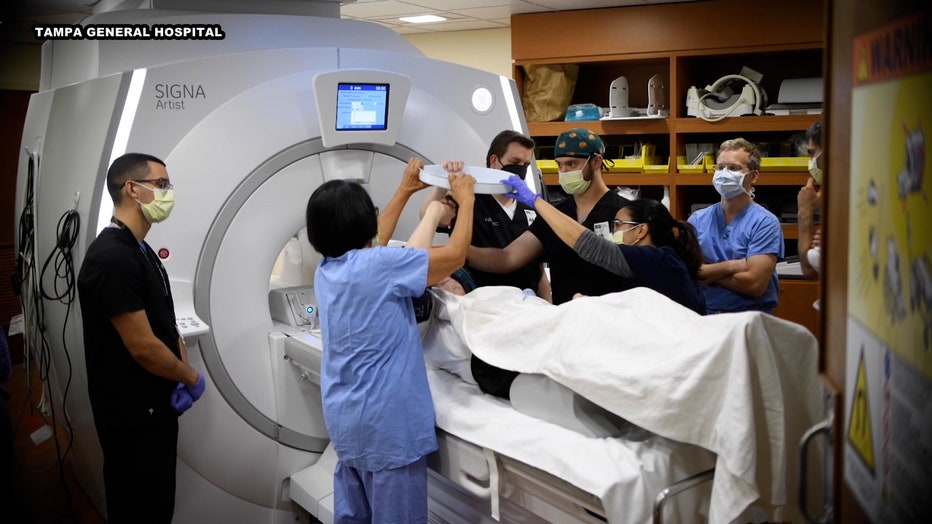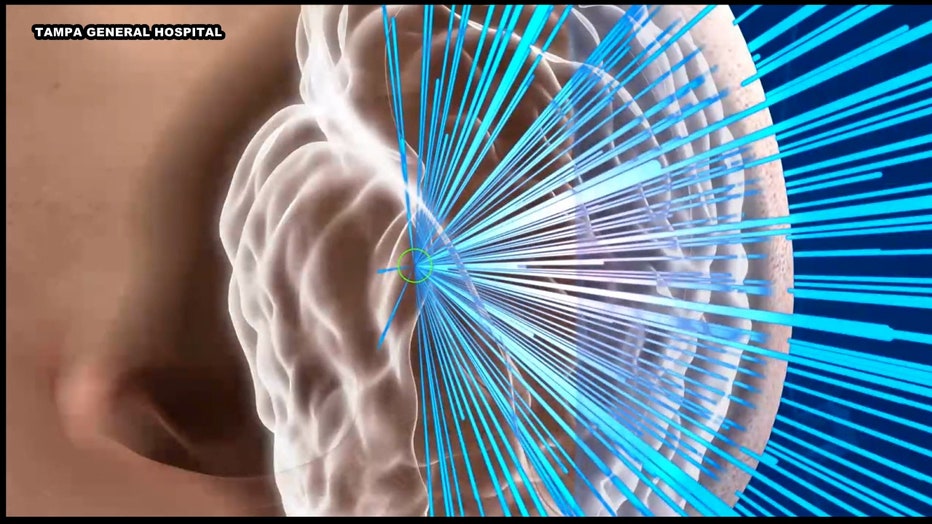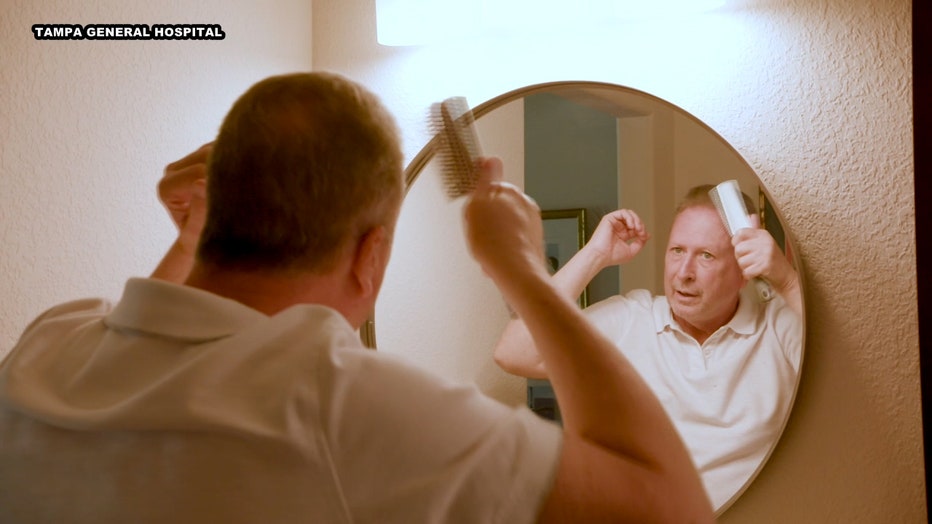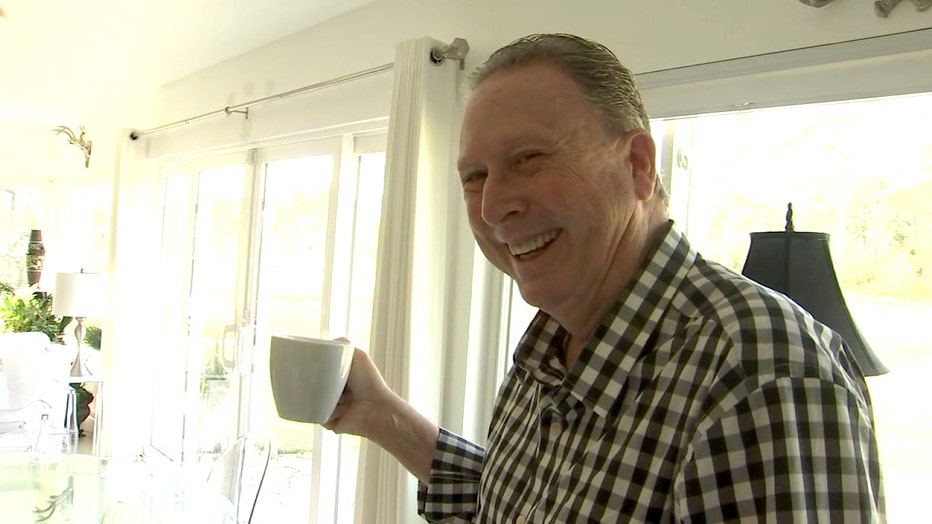Tampa man experiencing 'uncontrollable tremors' treated through focused ultrasound at TGH
TAMPA, Fla. - Holding a cup of coffee may not seem monumental, but for David Sherwood, it's nothing short of a blessing. It's a reminder of one of the simple things he wasn't able to do for years.
"Uncontrollable tremors in my right side. It was impossible to do daily routines. I had Hodgkin lymphoma and I had six months of chemotherapy and six weeks every day of radiation and it kind of messed up my nerves on my right side. I couldn't write at all. I couldn't hold a cup of coffee in the morning," he recalled. "People laugh a little bit, and I was a little embarrassed sometimes."
"It was very upsetting, and it hurt my soul, and it hurt my heart," Sherwood added. "I know that sounds dramatic but just thinking about it brings up all kinds of uncomfortable emotions."
Initially, he wondered if it was Parkinson's disease. But he found out it was called essential tremor.
"Essential tremor is a condition whereby people develop a tremor most commonly in the arm, but it can also affect the legs, the voice, and the head," said Dr. Yarema Bezchlibnyk, a neurosurgeon at Tampa General Hospital. "Initially, the most common presentation for Parkinson's disease is also a tremor, although that tremor tends to be a resting tremor that occurs when you're not using your hands."
Dr. Bezchlibnyk noted that when both tumors are in their early stages, they can easily be confused.
"It can be quite socially disabling because we use our hands for interacting with the world around us," he said, "and this is a tremor that occurs when you try to interact."
Sherwood wanted his quality of life back. He decided to be the first to try a new minimally invasive procedure at Tampa General Hospital called focused ultrasound, which required no anesthesia or incisions.

Sherwood was actually TGH's first patient using this treatment. Dr. Bezchlibnyk said he approached them a year before the system was implemented.
For Sherwood, he believed it was worth the wait. He elected to do the surgery once TGH was up and running.
"You clip your hair off," he said, describing the steps he needed to take before the ultrasound. "Then, they put the rubber cap and fill it with water once you get on the table. Because this is an ultrasound, the water keeps your brain cool."
During the procedure, ultrasound waves pass through the skull to heat and attack the areas inside the brain that generate the tremor. Dr. Bezchlibnyk said the procedure is done while the patient is awake and in an MRI scanner.

"Every doctor and every nurse was there for me," Sherwood recalled. "They would have you try and write your name. When I wrote my name the whole gallery started to applaud. It was like rebirth."
He said he noticed a change immediately.

"Your tremors are gone instantly," said Sherwood.
"He did phenomenally well," Dr. Bezchlibnyk stated. "He is starting to paint at home. He's able to interact with his surroundings in a way that isn't socially embarrassing."

Sherwood doesn't take any ordinary task for granted.
"It was tough. I wouldn't wish the cancer and I wouldn't wish the essential tremor on my worst enemy. I cannot tell you how grateful. I thank God every day and I'm back", said Sherwood.
For more information about essential tremors, head over to TGH's website. If you want to learn more about focused ultrasound, click here.


